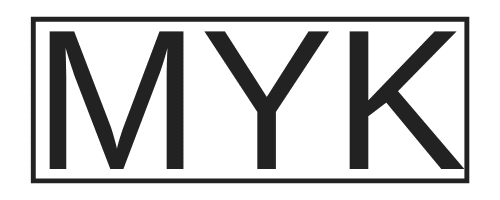How to Get a Remote Job 2023: Essential Guide and Websites
The demand for remote jobs has skyrocketed in today’s rapidly evolving job market. As more companies embrace the benefits of a distributed workforce, people like yourself seek the freedom and flexibility that remote jobs offer. With so many people looking to change, there is stiff competition, and you need a winning strategy to show you how to get a remote job.
In this comprehensive guide, I’ll share my experience, insider tips, and in-depth knowledge to help you kickstart your remote job search journey. Whether you’re a seasoned remote professional looking for new opportunities or a newbie just dipping your toes into remote work, this article is your go-to resource for mastering the art of securing remote jobs in 2023.
Is Remote Work Right For You

Remote work is different than a traditional job. Before getting a remote position, carefully consider your work preferences, lifestyle, and personality. Here are a few key factors to consider:
- Independence: You thrive under your own direction and are self-motivated; the autonomy of remote work may be the right fit for you.
- Work Environment: You want to tailor your workspace, whether a cozy home office or a favorite café, to suit your needs.
- Communication and Collaboration: You are an excellent written communicator and enjoy virtual meetings. Remote work relies heavily on virtual and asynchronous communication.
Ultimately, the decision to pursue remote work depends on your individual preferences, ability to stay self-motivated, and willingness to embrace the challenges and rewards of a remote work lifestyle.
Essential Skills

Remote work demands a unique combination of competencies beyond traditional job requirements.
- Self-motivation: Remote workers need to be self-starters who can manage their time and stay productive without direct supervision
- Communication: Effective communication is essential for remote workers to collaborate with colleagues, managers, and clients. This includes both written and verbal communication skills.
- Adaptability: Remote workers need to be adaptable and flexible to adjust to changes in work processes, workflows, and personnel without losing productivity or motivation
How to Get a Remote Job
1 – Identify Your Skills and Strengths
Before venturing into telecommuting, consider your abilities and how best to frame them for a remote role. Write a list of strengths and aptitudes you think hiring managers are looking for. Skills like time management, problem-solving, and technical expertise are all valuable assets when applying for remote positions.
Assess Your Remote Experience
Candidates with flexible work experience, like freelancing or telecommuting, should emphasize this in their resumes and cover letters to demonstrate their potential. Employers value candidates who can demonstrate their ability to succeed as remote employees.
Evaluate Your Technology Skills
Remote working often requires proficiency in various programs, video conferencing, project management tools, and basic troubleshooting skills for home office equipment issues. Take an inventory of your technology skills that could benefit potential employers.
Digital Tools Proficiency Examples:
- Email (e.g., Gmail)
- Instant Messaging (e.g., Slack)
- Project Management (e.g., Trello, Asana)
- Video Conferencing (e.g., Zoom, Google Meet)
Evaluate Your Soft Skills:
Identifying and highlighting your soft skills is paramount when applying for jobs. Employers value these qualities in remote environments; effective communication, adaptability, collaboration, and leadership are vital to virtual teams.
- Communication: Clear written and verbal communication is essential for working remotely since face-to-face interactions are limited.
- Schedule Management: Managing your schedule effectively ensures productivity while maintaining a healthy work-life balance.
- Self-Motivation: As there may not always be direct supervision from managers or colleagues nearby, self-motivation is critical for success in any remote career.
2 – Tailor Your Resume for Remote Jobs
To make your resume stand out to remote job recruiters, emphasize the skills and experiences most relevant to work remotely.
Incorporating the appropriate elements into your resume will show recruiters that you are aware of and prepared to handle the particular difficulties associated with working from a distance. Here are some key things to consider when writing your resume:
- Highlight your remote skills: Tailor your resume to highlight the essential skills, such as self-motivation, communication, and adaptability.
- Include remote work experience: If you have experience working remotely, include it in your resume. You can add it to the summary or location section under each past professional experience.
- Use a tech-savvy design: Make sure the design and layout of your resume convey your tech-savvy capabilities.
- Show off your personality: Employers want to know that you’re a good fit for their team, so show off your personality in your resume.
- Customize your resume for each job: Tailor your resume to each specific remote job you apply for by carefully reading the job ad and description and making adjustments as necessary.
With a strong foundation, you’ll be better prepared for the next steps in finding and securing a fulfilling remote job opportunity.
Key Takeaway:
To get a remote job, identify your skills and strengths that apply to remote work. Tailor your resume by emphasizing the most relevant experience.
3 – Research Remote Job Opportunities
Finding the perfect remote job starts with understanding the opportunities available and identifying those that align with your skills and interests. Below is a list of popular remote position categories:
- Customer service
- Marketing
- Programming and development
- Graphic design
- Writing and content creation
Online Job Board Research
A remote job board is an invaluable resource for discovering remote position options. These platforms provide a centralized hub where job seekers can explore various industries, roles, and companies. Empowering them to find the perfect fit for their skills and interests in the ever-expanding market. Below is a list of job boards:
4 – Update Your Online Profile
To secure a remote job, your online presence must highlight your abilities and background. A professional online profile will help potential employers find you and understand why you’re the perfect candidate for their role.
Update Your Resume and LinkedIn Profile
Your resume should highlight your previous experience working remotely, your technical skills, and any achievements related to working remotely or on distributed teams. Ensure to include keywords from the job description carefully so recruiters can quickly identify your relevant expertise.
Similarly, update your LinkedIn profile with information about your experience, emphasizing how you’ve contributed to projects or teams while working remotely. Remember to add certifications or courses related to remote-specific programs like project management tools or online chat programs.
Build an Online Portfolio
- If applicable, showcase samples of your work through an online portfolio website such as Behance or Dribbble, or even create a personal website using platforms like WordPress.
- An organized portfolio demonstrates not only the quality of your work but also proves that you can manage tasks independently, a crucial skill for remote employees.
Join Remote Job Boards and Platforms
Sign up on FlexJobs, Remote.co, or other job search platforms specializing in remote job listings to increase your chances of finding the perfect opportunity. These websites often have filters to help you narrow your search based on job category, location requirement, and more.
Engage Communities Online
Become an active member of online communities dedicated to remote work, such as Reddit or various Facebook groups. Participating in discussions will provide valuable insights and help establish connections with others who can refer you to open positions. Look for groups about becoming a digital nomad or working from home.
5 – Network for Remote Jobs
Building a robust professional network is essential when trying to find remote jobs. Networking can be a great way to uncover a remote job posting and connect with potential employers. Here are some tips on how to effectively network for remote jobs:
Utilize Social Media Platforms
Social media platforms like LinkedIn, Twitter, and Facebook Groups can be powerful tools in your job search. Follow industry leaders, join relevant groups or specific fields, and engage in conversations about your desired career path.
Attend Virtual Events and Webinars
Participate in digital gatherings such as webinars, online conferences, and meetups. These events often offer networking opportunities to connect with other professionals with similar interests.
Reach Out To Your Existing Contacts
Your current contacts might have connections within companies offering remote positions or know of someone who has successfully transitioned into a fully-remote role before having previous experience working remotely. Don’t hesitate to seek guidance from friends, family members, former colleagues, or even college alumni networks.
Join Online Communities
Become an active member of online communities dedicated to helping people succeed as a distributed workforce. Participating in online forums, like Slack, Reddit threads, and Remotive, can be a great way to gain insight into the remote job search process and connect with other teleworkers.
Seek Advice from a Career Coach
If you need help finding your footing or personalized guidance on navigating this new career path, consider a professional career coach who can provide some tips for working remotely.
6 – Apply for Remote Job Postings
Once you have determined your abilities, explored remote job openings, updated your online profile, and connected with others, it is time to leverage your efforts to find remote job postings. This process can be challenging, but following these tips will increase your chances of success.
Write Effective Cover Letters and Customize Your Resumes
Tailoring your resume and cover letter to each job demonstrates a genuine interest in the position and showcases how your skills and experiences align with the employer’s needs. This personalized touch allows you to highlight relevant accomplishments, emphasize vital qualifications, and make a stronger case for why you are the ideal candidate.
Utilize Job Search Platforms
Numerous job platforms have remote and work-from-home jobs, which can help streamline your search process. Some popular options include:
Prepare Your Remote Job Interview
The interview process is often different when applying for a fully remote role since most interviews will occur via video calls instead of in-person meetings. This means preparing accordingly by setting up a quiet home office space with good lighting and practicing answering common remote-specific interview questions.
Beware of Scams
Unfortunately, remote job listings can sometimes attract scams due to the flexible work and unlimited earning potential they offer. To avoid falling victim to these schemes, research each company thoroughly before applying by checking their website for a legitimate address or phone number and reading employee reviews on sites like Glassdoor.
FAQ
What Does It Take to Get a Remote Job?
To secure a remote job, you must identify your skills and strengths, research available opportunities, create a professional profile showcasing your expertise, network with others in the field, and apply for suitable positions. Demonstrating excellent communication abilities and self-discipline is also crucial.
How Do I Convince a Company to Hire Me Remotely?
Showcase your relevant experience and emphasize how working remotely can benefit both parties. Highlight your ability to work independently while maintaining strong communication skills. Provide examples of successful remote projects or collaboration experiences.
Is It Hard to Get Hired for a Remote Job?
Finding the right remote opportunity may be challenging due to competition; however, building an impressive online presence and networking strategically within relevant industries increases your chances of securing such positions. Persistence and adaptability are critical factors in this process.
How Do I Start a Remote Job?
To begin working remotely:
- Prepare for your first day: Get your office in order, set up your workstation, and make sure your laptop and all the equipment you need for working from home
- Buy work-from-home equipment: Ensure you have all the necessary equipment for working from home, such as a reliable computer, high-speed internet connection, and noise-canceling headphones.
- Company tech and tools: Make sure you’re familiar with the technology and tools used by the company, such as video conferencing software, project management tools, and communication platforms
- Establish your work schedule: Set up a schedule for work that allows you to be productive and focused during work hours
Final Thoughts
The work landscape is evolving at an unprecedented pace, and it presents many opportunities for those seeking a flexible and fulfilling career. The steps outlined in this how-to get a remote job guide, including assessing your suitability for remote work, honing essential skills, leveraging job boards, customizing your application materials, and networking effectively, will help you to secure a remote job successfully. Remember, remote work offers the freedom to work from anywhere, the flexibility to create your ideal work environment, and the chance to embrace a lifestyle that aligns with your individual preferences. With determination, adaptability, and a proactive approach, you can embark on a remote work journey that allows you to personally and professionally thrive. So, don’t wait any longer—start exploring the vast array of remote job opportunities and take the first step towards a rewarding and fulfilling remote career today!







